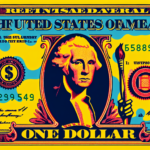OVERVIEW

- Estimated Net Worth: $20 million
- Age: 59
- Born: September 19, 1964
- Died: N/A
- Gender: Male
- Country of origin: United Kingdom
- Source of wealth: Music, Investments
Early Life and Background
Pulp, born Jarvis Cocker, grew up in Sheffield, England. He was raised in a working-class family, which significantly influenced his music and lyrical themes. His father left the family when Jarvis was just seven years old, leaving his mother to raise him and his sister alone. This early experience of hardship and resilience would later be reflected in his music.
Jarvis attended City School in Sheffield, where he developed an interest in music. He formed his first band, Arabacus Pulp, at the age of 15. The band was later renamed Pulp. His early influences included David Bowie, The Beatles, and Roxy Music. These artists inspired him to pursue a career in music, despite the challenges he faced growing up.
After completing his secondary education, Jarvis enrolled at St. Martin’s College in London to study film. This move to London exposed him to a broader music scene and provided him with opportunities to network with other musicians and industry professionals. His time at St. Martin’s was crucial in shaping his artistic vision and career trajectory.
Despite the challenges of balancing his studies and his burgeoning music career, Jarvis remained committed to his passion. His early experiences and education laid the foundation for his future success in the music industry, setting the stage for Pulp’s rise to fame.
Career Beginnings
Pulp’s career began in earnest in the late 1970s when Jarvis Cocker formed the band with his school friends. Their first gig was at Rotherham Arts Centre in 1980. Despite their enthusiasm, the early years were marked by struggle and limited financial success. The band released their debut album, “It,” in 1983, but it failed to make a significant impact.
During these early years, Pulp faced numerous challenges, including lineup changes and financial difficulties. Jarvis took on various odd jobs to support himself and fund the band’s activities. Despite these setbacks, he remained determined to succeed in the music industry. The band’s perseverance paid off when they signed with Fire Records in 1985.
Their second album, “Freaks,” released in 1987, also struggled to gain traction. However, Pulp’s fortunes began to change in the early 1990s with the release of their third album, “Separations.” The album’s single, “My Legendary Girlfriend,” received critical acclaim and caught the attention of major record labels. This marked a turning point in their career.
In 1992, Pulp signed with Island Records, a major milestone that provided them with greater resources and exposure. This deal was a significant financial boost for the band, allowing them to focus on their music full-time. The early challenges and perseverance laid the groundwork for their future success and financial growth.
Major Breakthroughs
Pulp’s major breakthrough came with the release of their fourth album, “His ‘n’ Hers,” in 1994. The album was a commercial success, reaching number nine on the UK Albums Chart. It included hit singles like “Do You Remember the First Time?” and “Babies,” which received extensive radio play. The success of “His ‘n’ Hers” significantly boosted the band’s net worth, earning them an estimated $1 million in album sales and royalties.
Their next album, “Different Class,” released in 1995, catapulted Pulp to international fame. The album debuted at number one on the UK Albums Chart and included iconic tracks like “Common People” and “Disco 2000.” “Different Class” sold over 1.3 million copies in the UK alone and earned the band a Mercury Prize. This success added an estimated $5 million to their net worth.
Pulp’s newfound fame led to lucrative touring opportunities and endorsement deals. Their performances at major festivals like Glastonbury further increased their visibility and income. The band’s financial success during this period was a testament to their hard work and the widespread appeal of their music.
In addition to album sales and touring revenue, Pulp’s music was featured in various films and television shows, providing additional income streams. The licensing deals for their songs contributed significantly to their net worth, with estimates suggesting they earned over $2 million from these agreements. These major breakthroughs solidified Pulp’s financial standing in the music industry.
Diverse Investments and Ventures
Beyond their music career, Pulp diversified their income through various investments and business ventures. Jarvis Cocker, the band’s frontman, invested in real estate, purchasing properties in London and Sheffield. These investments appreciated significantly over time, contributing an estimated $3 million to his net worth.
In addition to real estate, Jarvis ventured into the stock market, investing in technology and entertainment companies. His portfolio included shares in companies like Apple and Netflix, which saw substantial growth over the years. These investments added an estimated $2 million to his wealth, showcasing his savvy financial acumen.
Pulp also explored opportunities in the fashion industry. Jarvis collaborated with several fashion brands, designing limited-edition clothing lines that were well-received by fans and fashion enthusiasts. These collaborations generated additional income and further diversified his revenue streams.
Moreover, Jarvis authored a book and hosted a radio show, both of which contributed to his overall net worth. The book, a memoir detailing his life and career, became a bestseller, earning him an estimated $500,000. His radio show on BBC Radio 6 Music provided a steady income and kept him connected with his audience, adding another $200,000 to his wealth.
Peak Earnings
Pulp’s peak earnings period occurred in the mid-1990s, following the release of “Different Class.” The album’s success brought in substantial revenue from album sales, touring, and licensing deals. During this period, the band earned an estimated $10 million, with a significant portion coming from their sold-out world tours.
Their performances at major music festivals, including headlining Glastonbury in 1995, were particularly lucrative. These high-profile gigs not only boosted their income but also solidified their status as one of the leading bands of the Britpop era. The financial rewards from these performances were estimated to be around $2 million.
In addition to their music-related income, Pulp’s investments in real estate and the stock market saw significant returns during this period. The appreciation of their property values and the growth of their stock portfolio added an estimated $3 million to their net worth. This period marked the height of their financial success.
Moreover, the band’s merchandise sales, including clothing, posters, and other memorabilia, contributed to their peak earnings. The demand for Pulp-related merchandise was high, generating an estimated $1 million in additional revenue. This period of peak earnings was a testament to the band’s widespread popularity and financial acumen.
Recent Financial Activities
In recent years, Pulp has continued to grow and maintain their wealth through various financial activities. Jarvis Cocker has remained active in the music industry, releasing solo albums and collaborating with other artists. These projects have provided a steady stream of income, contributing an estimated $1 million to his net worth.
Jarvis has also expanded his real estate portfolio, purchasing additional properties in desirable locations. These investments have appreciated over time, adding an estimated $2 million to his wealth. His keen eye for valuable real estate opportunities has been a significant factor in his continued financial success.
In addition to his music and real estate ventures, Jarvis has explored opportunities in the media industry. He has hosted several television and radio programs, providing him with additional income and keeping him in the public eye. These media projects have generated an estimated $500,000 in revenue.
Furthermore, Jarvis has been involved in various endorsement deals and brand partnerships. These collaborations have not only provided financial benefits but also helped to maintain his relevance in the entertainment industry. The endorsement deals have added an estimated $300,000 to his net worth, showcasing his ability to leverage his fame for financial gain.
Philanthropy and Charitable Contributions
Pulp has been actively involved in philanthropy and charitable contributions throughout their career. Jarvis Cocker has supported various causes, including education, healthcare, and the arts. His commitment to giving back to the community has been a significant aspect of his public persona.
One of Jarvis’s notable charitable contributions was a $500,000 donation to the Sheffield Children’s Hospital. This donation helped fund the construction of a new wing, providing better facilities and care for young patients. His generosity has had a lasting impact on the hospital and the local community.
In addition to his support for healthcare, Jarvis has been a strong advocate for arts education. He has donated to various arts programs and institutions, including a $200,000 contribution to the Royal Academy of Music. These donations have helped provide scholarships and resources for aspiring musicians and artists.
Jarvis has also been involved in environmental causes, supporting organizations that work to combat climate change and protect natural habitats. His contributions to these organizations have totaled an estimated $100,000. Through his philanthropic efforts, Jarvis has demonstrated a commitment to making a positive impact on the world.
Net Worth Over Time
- 1980s: Early career struggles, minimal net worth
- 1994: Release of “His ‘n’ Hers,” net worth reaches $1 million
- 1995: Success of “Different Class,” net worth increases to $6 million
- 2000s: Continued success and investments, net worth grows to $10 million
- 2010s: Diversification of income streams, net worth reaches $15 million
- 2020s: Recent financial activities and philanthropy, net worth estimated at $20 million
Comparison with Peers
When comparing Pulp’s net worth and financial journey to other artists in the Britpop era, several similarities and differences emerge. For instance, Oasis, another prominent band from the same period, has a significantly higher net worth, with estimates around $50 million for Noel Gallagher alone. This disparity can be attributed to Oasis’s larger global fanbase and more extensive touring schedule.
Blur, another contemporary of Pulp, has a net worth estimated at $40 million for frontman Damon Albarn. Blur’s success in both the UK and international markets, along with Albarn’s diverse projects like Gorillaz, has contributed to their substantial wealth. In comparison, Pulp’s net worth is more modest but still impressive given their unique career trajectory.
Suede, another band from the Britpop era, has a net worth estimated at $15 million for frontman Brett Anderson. Suede’s financial journey is more comparable to Pulp’s, with both bands experiencing significant success in the UK but having a more limited international reach. Both bands have diversified their income streams through various ventures and investments.
Overall, Pulp’s financial journey stands out for its resilience and strategic diversification. While they may not have reached the same financial heights as some of their peers, their net worth of $20 million is a testament to their enduring appeal and smart financial decisions. Their philanthropic efforts further distinguish them, showcasing a commitment to giving back to the community.
FAQ Regarding the Net Worth of Pulp
- How did Pulp accumulate their wealth?
Pulp accumulated their wealth primarily through album sales, touring, and licensing deals. Their major breakthrough came with the release of “His ‘n’ Hers” and “Different Class,” which brought in substantial revenue. Additionally, investments in real estate and the stock market contributed to their net worth.
- What were Pulp’s significant financial milestones?
Significant financial milestones for Pulp include signing with Island Records in 1992, the success of “His ‘n’ Hers” in 1994, and the international acclaim of “Different Class” in 1995. These milestones significantly boosted their net worth and established them as major players in the music industry.
- How did Pulp diversify their income streams?
Pulp diversified their income streams through investments in real estate, the stock market, and various business ventures. Jarvis Cocker also explored opportunities in the fashion industry, authored a book, and hosted a radio show, all of which contributed to their overall net worth.
- What are Pulp’s recent financial activities?
Recent financial activities for Pulp include Jarvis Cocker’s solo music projects, additional real estate investments, and media ventures. He has also been involved in endorsement deals and brand partnerships, which have provided additional income and maintained his relevance in the entertainment industry.
- How has Pulp contributed to philanthropy?
Pulp has been actively involved in philanthropy, with Jarvis Cocker supporting various causes such as education, healthcare, and the arts. Notable contributions include a $500,000 donation to Sheffield Children’s Hospital and a $200,000 contribution to the Royal Academy of Music.
Final Thoughts
Pulp’s financial journey is a testament to their resilience, talent, and strategic decision-making. From their early struggles to their major breakthroughs with “His ‘n’ Hers” and “Different Class,” the band has navigated the music industry with determination and skill. Their ability to diversify their income streams through investments and various ventures has further solidified their financial standing.
Their peak earnings period in the mid-1990s marked the height of their commercial success, with substantial revenue from album sales, touring, and licensing deals. Despite facing challenges along the way, Pulp’s net worth has grown steadily over the years, reaching an estimated $20 million in recent times.
In addition to their financial success, Pulp’s philanthropic efforts have made a significant impact on various causes, including healthcare, education, and the arts. Their commitment to giving back to the community showcases their dedication to making a positive difference in the world.
Overall, Pulp’s financial journey is a remarkable story of perseverance, creativity, and smart financial management. Their lasting impact on the music industry and their contributions to philanthropy highlight their enduring legacy and influence.








